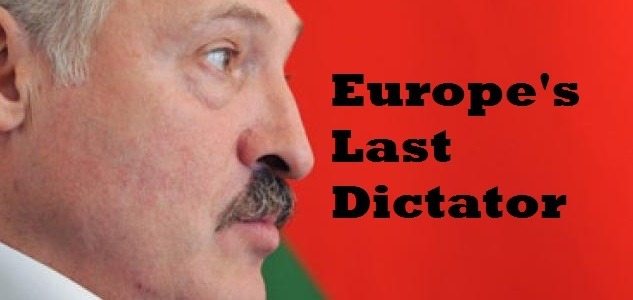
Europe’s Last Dictator Alexander Lukashenko of Belarus Dictatorship in embarrassing controversy
Democracy, elections and voting at Democracy Chronicles
Europe’s last dictator, in his own words
by james brooke
Belarus’ president, Alexander Lukashenko
At center his son Kolya attend Independence Day parade in Minsk, on July 3.
Nikolai Petrov/AFP/Getty Images
Belarusian President Alexander Lukashenko shocked and amused the world.
https://www.cia.gov/library/publications/the-world-factbook/geos/bo.html
After seven decades as a constituent republic of the USSR, Belarus attained its independence in 1991. It has retained closer political and economic ties to Russia than have any of the other former Soviet republics. Belarus and Russia signed a treaty on a two-state union on 8 December 1999 envisioning greater political and economic integration. Although Belarus agreed to a framework to carry out the accord, serious implementation has yet to take place. Since his election in July 1994 as the country’s first directly elected president, Aleksandr LUKASHENKO has steadily consolidated his power through authoritarian means and a centralized economic system. Government restrictions on freedom of speech and the press, peaceful assembly, and religion remain in place.
https://countrystudies.us/belarus/39.htm
Prelude to Independence
Belarus:
The series of events that led to Belarus’s independence began with the explosion at the Chornobyl’ nuclear power plant on April 26, 1986. The foot-dragging of the government in Moscow in even announcing that the accident had occurred, let alone evacuating people from affected areas and providing funds for the cleanup, greatly angered the Belorussian people, most of whom had no political aspirations for independence.
In 1988 Zyanon Paznyak, an archagologist who would later play a role in national politics, revealed the discovery of mass graves of some 250,000 of Stalin’s victims at Kurapaty. Many Belorussians were deeply shaken by this news, and some demanded accountability from the central authorities in Moscow. Reformers created the Belarusian Popular Front (BPF) in October after several mass demonstrations and clashes with the authorities. Paznyak became the spokesman for the reform movement and nationalist aspirations, and he emerged as the BPF chairman.
Leave a Reply